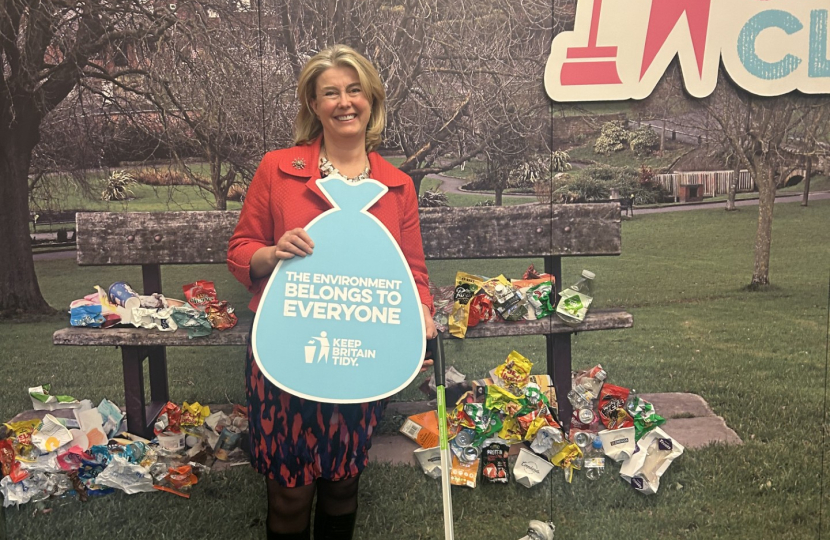
Both this year and last, I participated in the Big Plastic Count as well as joining local councillor and cabinet member for environment, Meg Davidson, at a collection in Prittlebrook. Reducing our personal use of plastic and making sure it is properly disposed of is important, but we must also make sure that our local area is kept clean from pollution and litter – which is why I took part in the plastic count again this year.
At a national level, the Government has set out the Resources and Waste Strategy for England, which aims to reduce, reuse, and recycle more plastic, and to work towards all plastic packaging being recyclable or reusable by 2025. I have noticed in my own shopping that more and more brands are switching to non-plastic or reusable packaging, and that shops are charging for plastic bags to incentivise reuse. The prevalence of single-use plastic carrier bags has dropped by an astounding 98%.
Similarly, the ban on microbeads and restrictions of plastic straws, stirrers and cotton buds have helped to reduce our reliance on plastic and the amount of waste. Similar restrictions have been applied to other single-use plastics, such as plastic kitchenware and cups and food containers. As, in England, we use 2.7 billion items of single use cutlery a year and only 10% are recycled, restrictions on such items signals a significant step forward in reducing our levels of plastic waste.
Through the Environment Act 2021, the Government has set a target is to halve residual waste by 2042. This is the waste that is sent to landfill, put through incineration, or used in energy recovery in the UK or overseas. This is an intentionally broad target, which will include the most environmentally harmful materials like plastics, rather than banning a single type of material and risk producers moving to a different, more harmful material.
On the international stage, the UK is leading the way in combatting pollution, in this case as a founding member of the High Ambition Coalition to End Plastic Pollution. This is a group of over 60 countries calling for the creating of an ambitious but effective treaty on reducing plastic reliance. This commitment was reiterated at the G7 meeting in Japan in 2023, where G7 nations committed to ending plastic pollution with the ambition to reduce additional plastic pollution to zero by 2040.
Thank you for taking the time to contact me about this. It is always reassuring to hear that Southend residents are also concerned about plastic pollution, and that we are all taking steps to protect our environment and break our overreliance on plastic goods.
Anna
